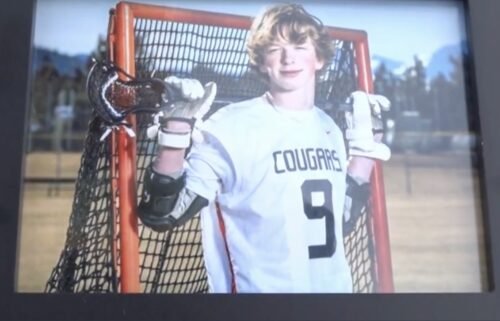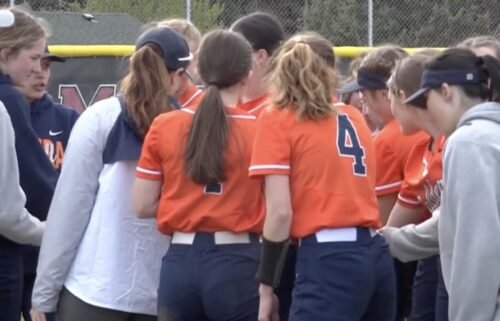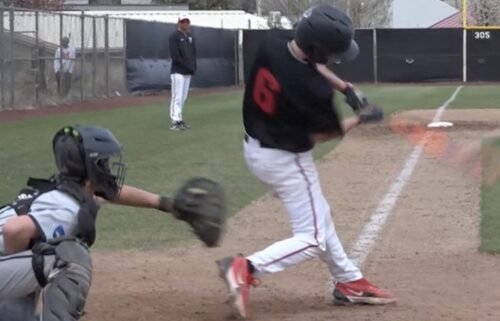Wagner insurrection plunges Russia into uncertainty. Here’s what you need to know
CNN
By Jerome Taylor and Tara John, CNN
(CNN) — The armed insurrection launched by Yevgeny Prigozhin, the bombastic chief of private paramilitary group Wagner, appeared to end as abruptly it started Saturday when the Kremlin said the mercenary agreed to leave Russia for Belarus in a deal apparently brokered by the country’s leader, Alexander Lukashenko.
The crisis began when Prigozhin unleashed a new tirade against the Russian military Friday before taking control of military facilities in the southern Russian city of Rostov-on-Don and Voronezh, plunging Russia into renewed uncertainty as President Vladimir Putin faces the biggest threat to his authority in decades.
Putin called Wagner’s actions “treason” and has vowed to crush those behind the “armed uprising.”
Some of Prigozhin’s forces began marching towards Moscow on Saturday before he published an audio recording claiming he was turning them around to “avoid bloodshed” in an apparently de-escalation of the rebellion.
Here’s what you need to know.
What did Prigozhin do?
The dramatic turn of events began Friday when Prigozhin openly accused Russia’s military of attacking a Wagner camp and killing a “huge amount” of his men. He vowed to retaliate with force, insinuating that his forces would “destroy” any resistance, including roadblocks and aircraft.
“There are 25,000 of us and we are going to find out why there is such chaos in the country,” he said.
Prigozhin later rowed back on his threat, saying his criticism of the Russian military leadership was a “march of justice” and not a coup – but by that point he appeared to have already crossed a line with the Kremlin.
The crisis then deepened as Prigozhin declared his fighters had entered Russia’s Rostov region and occupied key military installations within its capital. That city, Rostov-on-Don, is the headquarters for Russia’s southern military command and home to some one million people.
Prigozhin released a video saying his forces would blockade Rostov-on-Don unless Defence Minister Sergei Shoigu and Russia’s top general, Valery Gerasimov, come to meet him.
Amid the rebellion, Dmitry Medvedev, the deputy chairman of Russia’s Security Council, described developments in Russia as “a staged coup d’état,” according to Russian state media RIA Novosti.
Prigozhin has spent months railing against Shoigu and Gerasimov, who he blames for Moscow’s faltering invasion of Ukraine.
How did Russia respond?
Hours later Putin made an address to the nation that illustrated the depth of the crisis he now confronts.
“Those who carry deliberately on a path of treason, preparing an armed rebellion when you were preparing terrorist attacks, will be punished,” Putin said.
He said “any internal turmoil is a deadly threat to our statehood for us as a nation; it is a blow to Russia for our people and our actions to protect our homeland. Such a threat will face a severe response.”
But Prigozhin responded, saying on Telegram that the president is “deeply mistaken.” He said his fighters are “patriots of our Motherland” and promised: “No one is going to turn themselves in at the request of the president, the FSB or anyone else.” That marked a more direct threat to Putin than Prigozhin had typically deployed in the past.
Russia’s Defense Ministry earlier denied attacking Wagner’s troops, calling the claim “informational propaganda.”
And the Federal Security Service (FSB), Russia’s internal security force, also opened a criminal case against Prighozhin, accusing him of calling for “an armed rebellion.”
“Prigozhin’s statements and actions are in fact calls for the start of an armed civil conflict on the territory of the Russian Federation and are a stab in the back of Russian servicemen fighting pro-fascist Ukrainian forces,” an FSB statement said, calling for Wagner fighters to detain their leader.
Russian officials meanwhile appeared to take no chances with security measures stepping up in Moscow, declaring Monday a non-workday and imposing a counter-terrorism regime to strengthen security, according to Russian state media and officials.
Russian security forces in body armor and equipped with automatic weapons took up a position near a highway linking Moscow with southern Russia, according to photos published Saturday by the Russian business newspaper Vedomosti.
Meanwhile, in region of Voronezh, there was an apparent clash between Wagner units and Russian forces, damaging a number of cars.
But the escalating situation took a pause Saturday when Prigozhin claimed he was turning his forces around from their march to Moscow.
“We turning our columns around and going back in the other direction toward our field camps, in accordance with the plan,” he said in a message on Telegram.
The announcement comes as the Belarusian government claimed President Lukashenko had reached a deal with the Wagner boss to halt the march of his forces on Moscow. CNN has reached out to Prigozhin’s office for comment.
Who is Prigozhin?
Prigozhin has known Putin since the 1990s. He became a wealthy oligarch by winning lucrative catering contracts with the Kremlin, earning him the moniker “Putin’s chef”.
His transformation into a brutal warlord came in the aftermath of the 2014 Russian-backed separatist movements in the Donbas in eastern Ukraine.
Prigozhin founded Wagner to be a shadowy mercenary outfit that fought both in eastern Ukraine and, increasingly, for Russian-backed causes around the world.
CNN has tracked Wagner mercenaries in the Central African Republic, Sudan, Libya, Mozambique, Ukraine and Syria. Over the years they have developed a particularly gruesome reputation and have been linked to various human rights abuses.
Prigozhin’s political star rocketed in Russia after Moscow’s full invasion of Ukraine in February 2022.
While many regular Russian troops saw setbacks on the battlefield, Wagner fighters seemed to be the only ones capable of delivering tangible progress.
Known for its disregard for the lives of its own soldiers, the Wagner group’s brutal and often lawless tactics are believed to have resulted in high numbers of casualties, as new recruits are sent into battle with little formal training – a process described by retired United States Lt. Gen. Mark Hertling as “like feeding meat to a meat grinder.”
Prigozhin has used social media to lobby for what he wants and often feuded with Russia’s military leadership, casting himself as competent and ruthless in contrast to the military establishment.
His disagreements with Russia’s top brass exploded into the public domain during the grim and relentless battle for Bakhmut during which he repeatedly accused the military leadership of failing to supply his troops with enough ammunition.
In one particularly grim video from early May, Prigozhin stood next to a pile of dead Wagner fighters and took aim specifically at Russian Defense Minister Sergei Shoigu and chief of the Russian armed forces Gen. Valery Gerasimov.
“The blood is still fresh,” he says, pointing to the bodies behind him. “They came here as volunteers and are dying so you can sit like fat cats in your luxury offices.”
Putin presides over what is often described as a court system, where infighting and competition among elites is in fact encouraged to produce results, as long as the “vertical of power” remains loyal to and answers to the head of state.
But Prigozhin’s increasingly outrageous outbursts have sparked speculation in recent weeks that even he could be going too far.
Putin’s national address sets up a direct confrontation at the heart of Russia’s establishment at a time when Ukraine is hoping to make advances during its own summer offensive.
Putin likened what he now faces to the Russian Revolution in 1917, when the Bolsheviks overthrew Tsar Nicholas II of Russia in the midst of World War One, plunging the country into civil war and eventually paving the way for the creation of the Soviet Union.
“This was the same kind of blow that Russia felt in 1917, when the country entered World War I, but had victory stolen from it,” Putin said.
“Intrigues, squabbles, politicking behind the backs of the army and the people turned out to be the greatest shock, the destruction of the army, the collapse of the state, the loss of vast territories, and in the end, the tragedy and civil war. Russians killed Russians, brothers killed brothers.”
Steve Hall, a former career CIA officer and now CNN contributor, said Prigozhin has placed himself in a hugely precarious position and knows full well what he faces.
Prigozhin “knows precisely what his risk is … which is kind of interesting when you think about it, because that means he must have calculated that he can pull this off … A guy like Prigozhin knows what the risks are and knows that if it doesn’t go well for him, it’s gonna go really badly,” he added.
What happens now?
In a conference call with reporters Saturday, Kremlin spokesman Dmitry Peskov said an agreement was struck with Prigozhin.
“You will ask me what will happen to Prigozhin personally?” Peskov said. “The criminal case will be dropped against him. He himself will go to Belarus.” Peskov added that the Kremlin was unaware of the mercenary’s current whereabouts.
Videos, authenticated and geolocated by CNN, also showed Prigozhin and Wagner forces withdrawing from their positions at Russian military headquarters in Rostov-on-Don.
In the video, Prigozhin is seen sitting in the backseat of a vehicle. Crowds cheer and the vehicle comes to a stop as an individual approaches it and shakes Prigozhin’s hand.
Meanwhile the open disunity within Russia’s armed forces has been greeted with glee and much schadenfreude in Kyiv.
Malcolm Davis, a senior analyst at the Australian Strategic Policy Institute, said Ukraine will be keen to exploit the turmoil, especially if Moscow is forced to move troops from the frontline.
“Obviously they need to see what is actually happening with the disposition of Russian forces along their defensive lines,” he told CNN.
“If Russian forces at those locations are being withdrawn to fight Wagner – to defeat what is certainly an insurrection at the moment but could be which could become a civil war down the track – then potentially you will see the Ukrainians opening up new opportunities, identifying gaps in the Russian lines that they can push through and exploit.”
“If gaps open up, then they need to be ready to exploit those gaps,” he added.
That is what appeared to have happened. Ukrainian forces launched simultaneous counteroffensives in multiple directions, according to Ukraine’s Deputy Defense Minister Hanna Maliar. She said that “there is progress in all directions” without giving any further detail.
Ukrainian presidential adviser Mykhailo Podolyak said Prigozhin’s escalation “almost nullified” Putin and criticized Prigozhin for “suddenly” turning his forces around. Ukrainian President Volodymyr Zelensky, in his nightly address, claimed Putin is “very afraid,” saying that the Russian president is “probably hiding somewhere, not showing himself.”
The-CNN-Wire
™ & © 2023 Cable News Network, Inc., a Warner Bros. Discovery Company. All rights reserved.
Reporting contributed by CNN’s Nathan Hodge.



